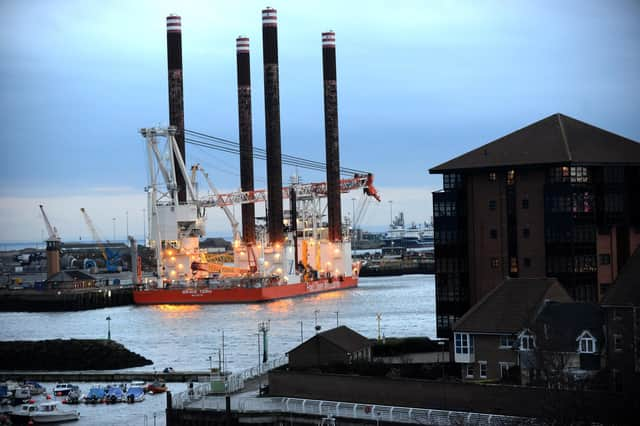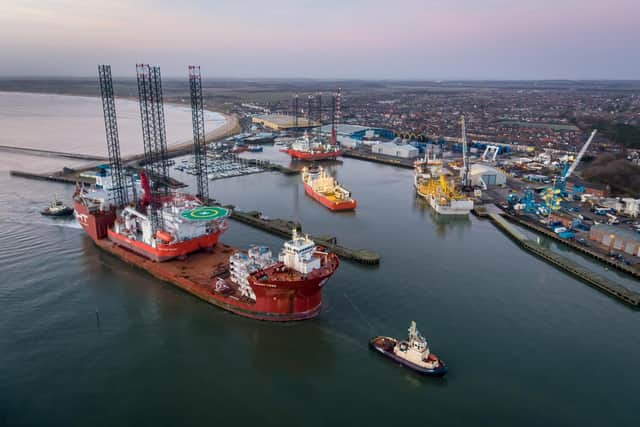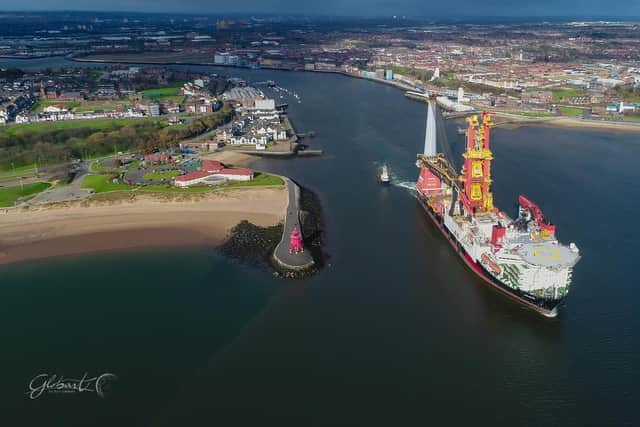Concerns raised over Freeport bid as leaders voice fears over job numbers and tax breaks


A freeport is a special economic zone where businesses can operate outside of normal tax and customs rules, with the North East’s plan involving the ports of Tyne, Blyth, and Sunderland – plus Newcastle International Airport, the Nissan plant in Sunderland and the neighbouring International Advanced Manufacturing Park.
Advertisement
Hide AdAdvertisement
Hide AdSunderland MP Bridget Phillipson wrote last week that, while it makes “obvious sense” for local councils to try and secure freeport status for their area, there is “very limited evidence that free ports create jobs”.


North of Tyne mayor Jamie Driscoll has also been among the Labour voices who have doubted the freeport model, saying last year that some “have simply displaced economic activity from one place to another or have been opportunities for tax avoidance” – though he has backed the North East bid.
Now Newcastle City Council leader Nick Forbes has become the latest figure to question the Government’s freeport plans, which critics have claimed could create tax havens and simply relocate existing jobs to tax break areas rather than encouraging new investment.
The city Labour figurehead said that local councils had put a lot of time into ensuring the proposed North East freeport “most closely matches our ambitions for how people will be treated, how people will be employed, and how the economy would work”, but that he still had concerns about the impact of the potential tax breaks.
Advertisement
Hide AdAdvertisement
Hide AdCoun Forbes told a North of Tyne Combined Authority scrutiny meeting on Tuesday that it was “not a secret that I have got some concerns about displacement activity into freeport areas”.


He also raised fears about a potential loss of vital business rate income for cash-strapped local councils.
Coun Forbes said he was satisfied that the North East proposal would have the “least disruptive or least displacement effect on existing activity” and that, while he would not have supported the principle of a freeport scheme if in government, “it is the show in town and we have to be pragmatic about it.”
But he added: “The one thing that I am still concerned about, frankly, is the opportunity for businesses within a freeport area to be given tax breaks that are not available to those outside of the freeport area.
Advertisement
Hide AdAdvertisement
Hide Ad“You can see how that would be beneficial if it was for things like the purchase of equipment or machinery to help establish a manufacturing business.
“When it is things like a waiver of National Insurance contributions for a number of years, you then have to question whether actually this is going to have the desired impact on the quality of employment practice that we all want to see.”
Areas across the UK are competing for at least 10 freeport slots to be decided by the government, including Teesside – where Conservative Tees Valley mayor Ben Houchen has been a vocal supporter of the policy.
After submitting the Teesside bid, he said: “Make no mistake, the Teesside Freeport will absolutely be game changing for Teesside – it will turbo-charge the local economy over the coming years and create thousands of good-quality jobs for local people.
“When I set out on this journey three years ago with the now Chancellor, many people said the UK would never introduce Freeports and that no government would make such sweeping changes to trade and customs policy. But with our bid now with government we could have a decision in just a matter of weeks making Teesside home to the UK’s first and biggest Freeport.
“Despite what detractors of Freeports say, these free-trade zones are not about reducing environmental protections or workers’ rights.”
The Government says that freeport areas will benefit from a package of tax reliefs, simplified customs procedures, duty suspensions on goods, and a streamlined planning process to aid brownfield redevelopment.